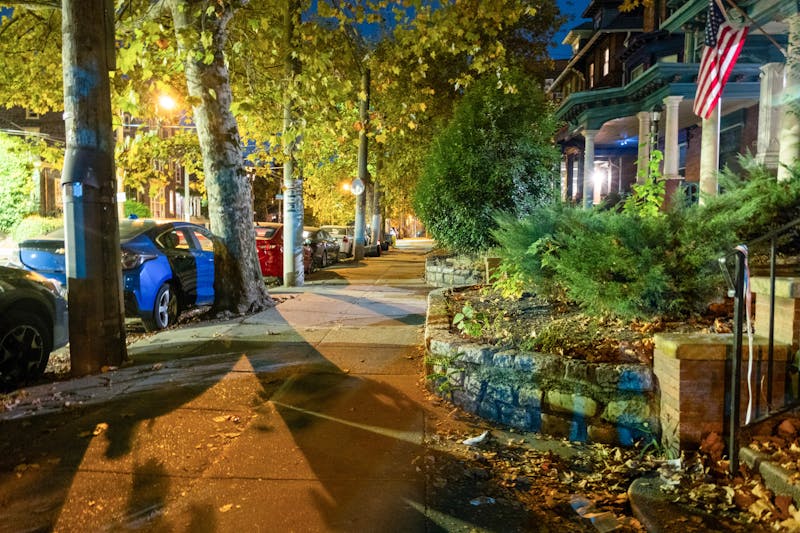I hate to be the bad guy, but somebody's gotta go. There are too many performing arts groups on campus. The abundance of groups is diluting talent and resources, thereby lowering the quality of performing arts across the board. Penn's 36 dance, theater, music, a cappella and comedy clubs have spent the last two weeks courting new talent for the coming semester. And each year at this time, I recall with dread that after competition between auditioners ends, the competition between groups begins. As a member of the governing board of the Pennsylvania Players, I have witnessed performing arts groups vie for access to money, rehearsal rooms and performance space more ferociously than sopranos at the Counterparts callback. Another hotly contested commodity is techies -- the folks who orchestrate lights, costumes, sets and just about everything else that makes a show possible. I once saw a terrified stage manager being torn practically limb from limb while two groups argued over who would get her for their show. Because techies are in high demand, they are invariably overworked and don't have time to develop their skills in one area of expertise. Similarly, the battle for talented performers is a fierce fight; clubs must attract a large number of auditioners in order to have a sufficient talent pool from which to select a handful of performers. At the annual Freshman Performing Arts Night, a mega-show that offers new students a glimpse of every performance group, I watched recruiters in the lobby warily eyeing one another as they awaited their prey. When the frosh flooded the lobby at intermission, the recruiters assaulted them with millions of colored fliers, imploring them to audition for this or that. Shouldn't would-be performers be begging the clubs for attention, and not vice versa? If Penn had fewer groups, performing talent would become concentrated and techies would have the chance to cultivate their skills. As a result, Penn audiences would be treated to better shows. Penn's Performing Arts Council, the governing body for those three dozen groups, should consolidate a few of its eight dance teams; 11 a cappella ensembles; nine music, comedy and singing groups; and eight theater clubs. Many existing groups cater to the same audience niche and could merge without shifting or losing their focus. Not to desecrate a genre near and dear to the Penn majority, but how many radio-rock a cappella groups do we need? Furthermore, while certain organizations sell out their shows, others struggle to find an audience. These groups should step aside if they no longer fill a need in the Penn community. PAC Chairwoman Cassandra Georges has a firm grasp of the issue. "Constitutions become outdated as groups evolve," she told me. However, she added, "I don't believe in setting a limit for performing arts groups, especially if there is a need for a new group. That's the Penn way: Everyone has a chance to make their own niche." But if new and different clubs are to flower, we have to first remove the dead wood from the performing arts community. With four fledgling groups preparing to apply to PAC this year, I urge Georges to merge existing groups that have strayed from their constitutions. PAC should also tighten its admission rules to prevent redundant clubs from forming and further diluting the resource pool. This is a debate about quality versus quantity. And some proponents of the status quo support quantity, arguing that performers want to have fun more than they want to have a good show. But where's the fun when you find yourself biting and clawing for rehearsal space, show dates, an experienced tap dancer or an available costume designer? As a life-long performer, I understand the thirst for limelight and sympathize with performers who don't want their onstage opportunities limited. To provide more performing opportunities, PAC could organize classes that would culminate in smaller-scale performances like one-acts, workshop comedy performances and one-night song-and-dance presentations. Learning as well as performing would be emphasized, allowing less-experienced performers to develop their skills. This would also be a less-pressured environment in which to train techies. I hope PAC will help raise the quality of Penn shows by consolidating redundant groups and admitting new groups only when they fill a unique niche. Perhaps at future freshman arts nights, former rival group members can repose benevolently behind their information tables and wait for freshmen, drawn by rumors of high-caliber shows, to come to them.
The Daily Pennsylvanian is an independent, student-run newspaper. Please consider making a donation to support the coverage that shapes the University. Your generosity ensures a future of strong journalism at Penn.
DonatePlease note All comments are eligible for publication in The Daily Pennsylvanian.







